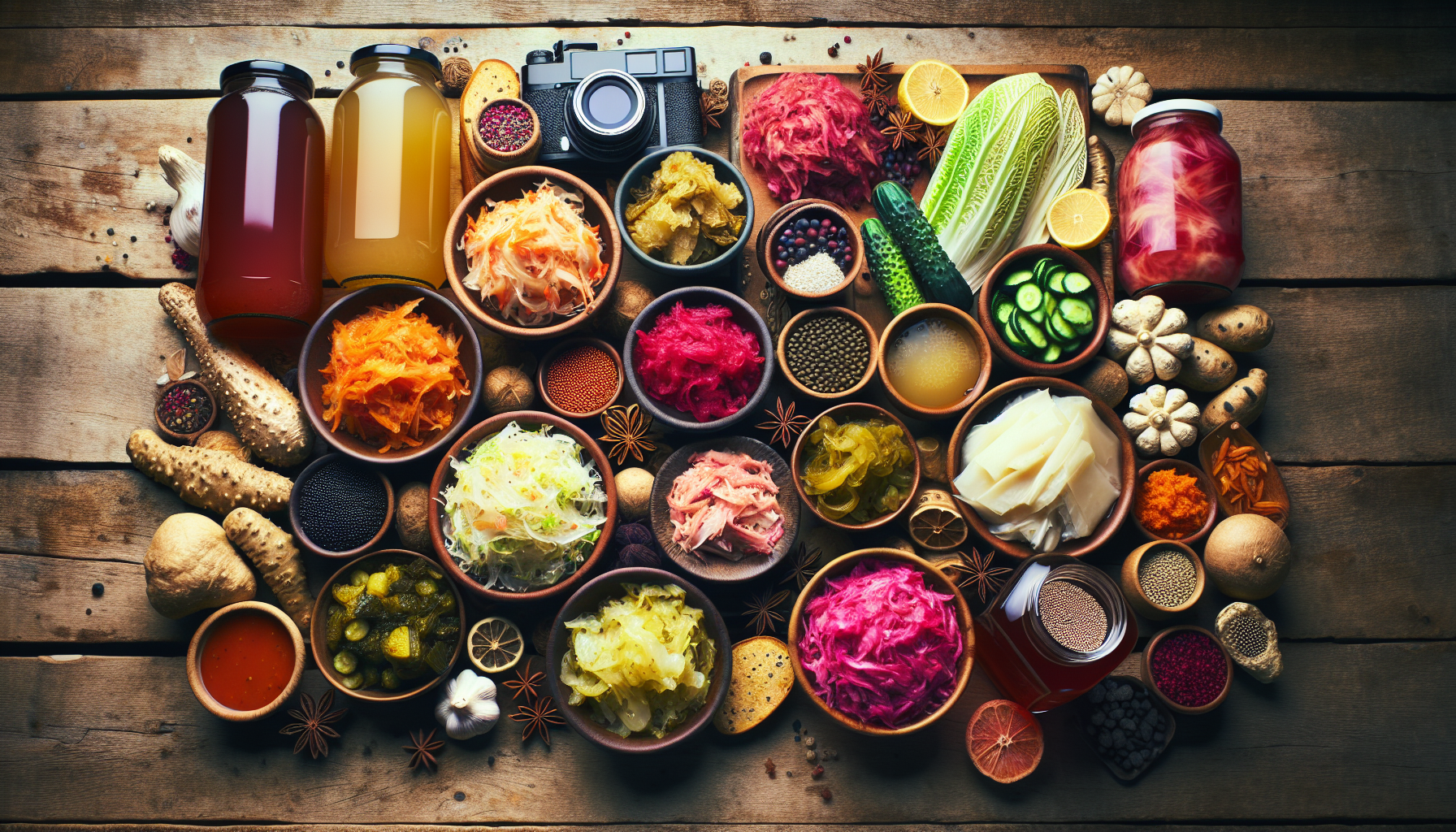Fermentation, an age-old culinary technique, is making a modern comeback as a powerhouse for health. By transforming foods like cabbage into sauerkraut or milk into kefir, fermentation introduces beneficial probiotics that support a balanced gut microbiome. This balance is crucial, as a healthy gut influences digestion, nutrient absorption, and even immune function. Regular consumption of fermented foods can alleviate common digestive issues such as bloating, gas, and constipation. For instance, kimchi and sauerkraut are rich in fiber, which adds bulk to the stool and helps regulate bowel movements.
Beyond digestion, fermented foods offer a range of health benefits. They are rich in essential nutrients, including vitamins B1, B2, B3, B5, B6, B12, and K, which are critical for overall health and well-being. Additionally, the probiotics in these foods can enhance mental health by influencing the gut-brain axis, potentially reducing symptoms of anxiety and depression. Incorporating a variety of fermented foods into your diet can be a flavorful and effective strategy for improving both physical and mental health.
Key Takeaways
- Fermented foods support a balanced gut microbiome, aiding digestion and nutrient absorption.
- They are rich in essential vitamins and minerals, contributing to overall health.
- Probiotics in fermented foods may enhance mental well-being by influencing the gut-brain axis.
- Regular consumption can alleviate common digestive issues like bloating and constipation.
- Incorporating a variety of fermented foods can improve both physical and mental health.
Example
To harness the full benefits of fermentation, create a simple “gut-friendly rotation plan”: start by adding one tablespoon of sauerkraut or kimchi to your lunch daily, then rotate weekly with other probiotic-rich foods like kefir, miso, tempeh, or kombucha. Pair these with prebiotic fibers (e.g. oats, garlic, bananas) to feed the beneficial bacteria. For mental clarity, track your digestion and mood in a daily log to notice connections over time. You can also try DIY fermentation—start with a basic sauerkraut recipe using cabbage, salt, and a mason jar. This habit supports digestion, boosts nutrient intake, and strengthens the gut-brain connection holistically.
